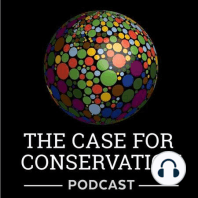59 min listen

12. Is hype distorting science? (Randy Schekman)
12. Is hype distorting science? (Randy Schekman)
ratings:
Length:
48 minutes
Released:
Jul 5, 2021
Format:
Podcast episode
Description
The scientific method remains the best systematic approach we have been able to develop in our ongoing endeavor to advance human flourishing. But that does not mean it's perfect - indeed, it probably never will be. But what are the ways in which we can make science better? Perhaps some of the most fundamental ways lie in the process of publishing research findings. This applies to biodiversity science as much as it does to other scientific disciplines. Randy Schekman joins me to pick apart some of the well-known and less well-known critiques of the scientific publication process, including the role of hype. Randy is a cell biologist, Nobel Prize winner, and previous editor-in-chief of PNAS, Annual Review of Cell Developmental Biology, and eLife. He is based at the University of California, Berkeley, where he has spent almost his entire career.01:57: How biodiversity got Randy interested in science07:37: How and why we publish scientific research11:50: Domination by commercial journals17:22: The introduction of impact factor, and its flaws21:12: Professional editors and other problems with "luxury journals" 26:59: The pressure to publish in big journals, and its societal implications28:11: The problem with not publishing negative results34:41: What's changed since Randy began his crusade in 2013?38:03: What can we do about it?43:30: What's the alternative to impact factor?Visit www.case4conservation.com
Released:
Jul 5, 2021
Format:
Podcast episode
Titles in the series (45)
1. Is the conservation message getting through? (Tim Hirsch) by The case for conservation podcast